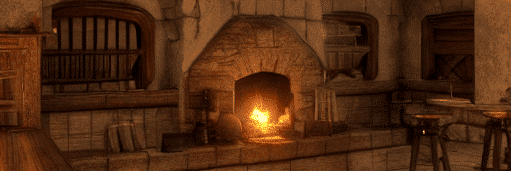
Common Fireplace Issues
Gas fireplaces are a popular choice for homeowners looking to add warmth and ambiance to their living spaces.
However, like any appliance, they can experience issues from time to time.

Here are some common gas fireplace problems you may encounter:
1. Pilot Light Won’t Stay Lit – A pilot light that won’t stay lit is one of the most common issues with gas fireplaces.
This could be due to a problem with the thermocouple or the gas valve. Check these components to ensure they are working properly.
2. Gas Not Igniting – If your gas fireplace isn’t igniting, there could be several reasons why.
One possibility is that the gas pressure is too low. You can check this by adjusting the regulator on the gas line leading into the fireplace.
Another issue could be a clogged burner orifice. Clean out any debris using a wire brush and compressed air.

3. Burner Flames Are Uneven – If your flames are uneven, it could indicate a problem with the burner assembly.
Check all the connections between the burner and the gas line as well as the ventilation system to make sure everything is securely in place.
4. Excessive Sooting – Sooting occurs when unburned fuel particles accumulate on the glass or brick surrounding the fireplace.
This can happen if the fireplace is not burning hot enough or if the gas pressure is too high.
Adjust the gas pressure or clean the soot off the glass/brick surface.
What Is a Gas Fireplace Problem?

A gas fireplace problem can range from minor issues such as a pilot light that won’t stay lit to more serious concerns such as carbon monoxide poisoning.
It’s important to understand what kind of problem you’re dealing with before attempting to fix it yourself.
Some common signs of a gas fireplace problem include strange noises coming from the fireplace, an unusual smell, or visible damage to the unit itself.
In some cases, a professional technician will need to diagnose and repair the issue.
Why Isn’t My Fireplace Burning Properly?

There are many potential causes of poor fireplace performance. One possible culprit is a dirty burner orifices.
Over time, dirt and debris can build up inside the burner tubes, making it difficult for the gas to flow properly. To clean them, use a wire brush and compressed air.
Another possibility is a faulty thermostat or electronic control board.
These components control the temperature and operation of the fireplace, so if they aren’t functioning correctly, the fireplace may not work properly.
Finally, a blocked vent or chimney could also cause poor performance. Make sure nothing is blocking the exhaust pathway.

How Long Does a Fireplace Last?
The lifespan of a gas fireplace depends on various factors including its quality, usage, maintenance, and environmental conditions.
Generally speaking, a high-quality gas fireplace should last around 15-20 years with proper care and maintenance.

However, it’s always best to consult with a certified technician who has knowledge about your specific model and brand.
They can provide guidance on how often you should perform routine maintenance tasks such as cleaning and inspecting the fireplace.
When Should You Replace Your Fireplace?
Like any major household appliance, a gas fireplace will eventually wear out over time.
The average lifespan of a gas fireplace is around 15-20 years, but this can vary depending on the quality of the unit and how much it was used.

Signs that it might be time to replace your fireplace include frequent repairs needed, difficulty getting parts replaced, reduced efficiency, and increased energy bills.
Ultimately, only you can decide whether replacing your fireplace is worth the investment based on your personal preferences and needs.
